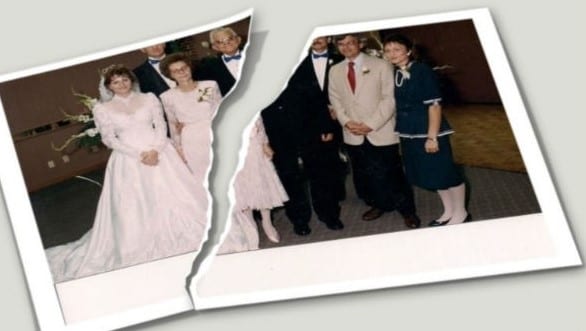“Oh my God,” my sister said, “you sounded just like Dad when you screamed at your wife during an argument!” She said that my head turned in a certain way just like our dad’s used to when he was in one of his frequent rages. “I thought he rose from the dead for a moment and you were him,” she laughed.
My poor wife of nearly seven years is still learning about bipolar disorder symptoms, especially the over-reaction to stress. Stress is one of the nine biggest triggers for bipolar mood swings.
My sister is 18 years younger than I am. She and her sons visited me and my wife recently, travelling from their home in Florida to ours in Southern California. Before the visit, we had last seen each other at our father’s funeral in 1992. I had never met her two sons. My sister’s illnesses, my illness, and our living on opposite sides of the country (without the financial means of traveling) kept us apart for over two decades. One of our brothers and a sister both died by suicide. My little sister and I still cry when we speak of them, wishing we could have done more to help them. Our brother, 35, was diagnosed with bipolar disorder, but he developed an alcohol and substance abuse problem instead of seeking medical treatment. Our sister, 40, had major depression. She, too, developed a substance abuse problem instead of getting psychiatric help. Our brother and sister were too afraid of mental illness stigma to get professional help.
Our dad died three months after our brother’s suicide. He was only 62. His death was caused by heart disease, but I think it was really from a broken heart over the death of his son.
I was finally diagnosed with bipolar disorder a year after my brother and our dad died. The diagnosis explained a manic episode in 1988 that had destroyed my marriage and career as a college professor. I had hidden my depression from my employer and friends out of fear of stigma. Our father had run from his own mental illness out of shame, feeding our beliefs about mental illness with jokes about what he called the “crazies.” Dad was not diagnosed or treated for bipolar disorder until two years before his death; he also developed an alcohol abuse problem in an attempt to cope with his depression. His manic moods exploded into episodes of domestic violence against my mother and, after her death from natural causes when I was 14, my step-mother. All the domestic violence happened in front of us as children, leaving scars like PTSD and making it difficult for us to have healthy intimate relationships as we matured.
I am the eldest of the Roberts siblings. I was never close to any of my brothers or sisters until five years before my brother died. One day, he had called me and asked if we could be close. That was when our deep friendship began; we spent every moment we could together. My eyes moisten with tears whenever I tell the story of his brief, tragic life in my speeches about the potential consequences of mental illness stigma.
My little sister’s recent visit came at a time she was recovering from a heart attack and a mild stroke. She is only 47. I am in the throes of progressive multiple sclerosis, which has left me legally blind and using a walker or cane to keep my balance.
“This may be the only time we ever see each other again, Sis,” I told her. “Let’s make it a memorable and happy time. Maybe our parents are watching us from Heaven and we’ve made them happy that the family is finally getting back together.”
I’m the only person my sister knows who understands what it is like to have bipolar disorder. She was diagnosed with bipolar II disorder 21 years ago and, in the years following, has also battled severe physical illnesses. She has yet to stabilize with bipolar. I’m trying to help her reach stability the way I did, and as I explained in a 2015 webinar for IBPF.
Our surviving brother is now 55. My sister and I have not seen him in several years; we have a strained relationship due to differing views on religion. He reached out to me a year ago, however, because he believes he may have the “family illness,” as he calls it. He would not mention the term bipolar, but admitted that he is severely depressed and asked for my advice on what he should do to recover.
We three are the survivors of a dysfunctional family, in which untreated bipolar disorder has left wreckage that may affect generations. We are finally reuniting in time for the season of Thanksgiving and just before what would have been Dad’s 86th birthday. “I’ve forgiven you, Dad, because you were sick,” I whispered to myself. “May you rest in peace.”
As poet William Blake wrote, “The thankful receiver bears a plentiful harvest.” May our harvest in the remaining years of the Roberts siblings be bountiful as we give thanks for a better life here, now, and tomorrow.
My sister, brother, and I can now celebrate the “Ghost of Thanksgiving Present” one day at a time.
To see more of Tom’s work, visit his website, read his posts on MVP seminars, Tumblr and Stigma Fighters, or check out the rest of his posts for IBPF here.
The content of the International Bipolar Foundation blogs is for informational purposes only. The content is not intended to be a substitute for professional medical advice, diagnosis, or treatment. Always seek the advice of your physician and never disregard professional medical advice because of something you have read in any IBPF content.


